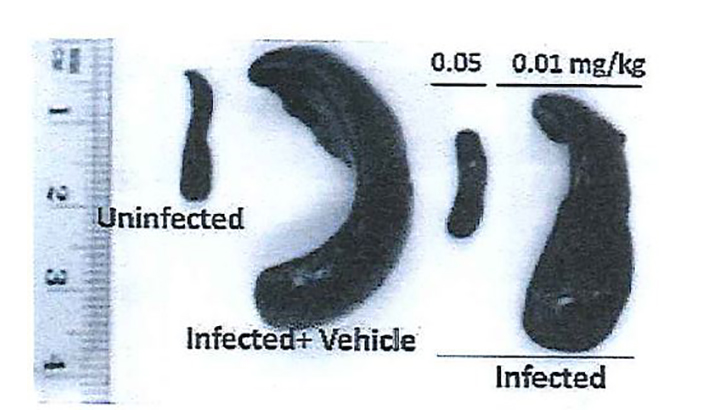Nutrient-Derived Anti-Leukemic Compounds
ID# 2011-3813
Technology Summary
A team of Penn State researchers have discovered a family of metabolites of natural food products that targets leukemia stem cells (LSCs) in two well-studied models of leukemia, Friend Virus (FV)- induced murine leukemia and a well-studied mouse model for chronic myelogenous leukemia (CML) that used overexpression of human BCR-ABL kinase. The researchers demonstrated that the metabolite’s administration completely ablated the leukemia, restored the normal hematological parameters, and eradicated LSC via apoptosis without inducing splenomegaly. Even though the control mice died within two weeks after the transplantation of the LSCs, the treated mice survived without the relapse of the disease to demonstrate the long-term viability of this nanomolar treatment.
Application & Market Utility
Leukemia is a highly prevalent disease that signifies uncontrolled production of white blood cells. Current therapies for leukemia consist of chemotherapy, radiation therapy, stem cell therapy, and biological therapy. Anti-leukemic drugs are only able to prolong the patient’s life, because the treatment targets bulk cancer cells, but not the cancer stem cells. Targeting cancer stem cells is of paramount importance to successfully combat the relapse of this hematopoietic cancer.
Next Steps
4 issued US patents (8,802,680; 9,119,862, 9,289,435; and 9,623,031). Seeking licensing opportunities.

